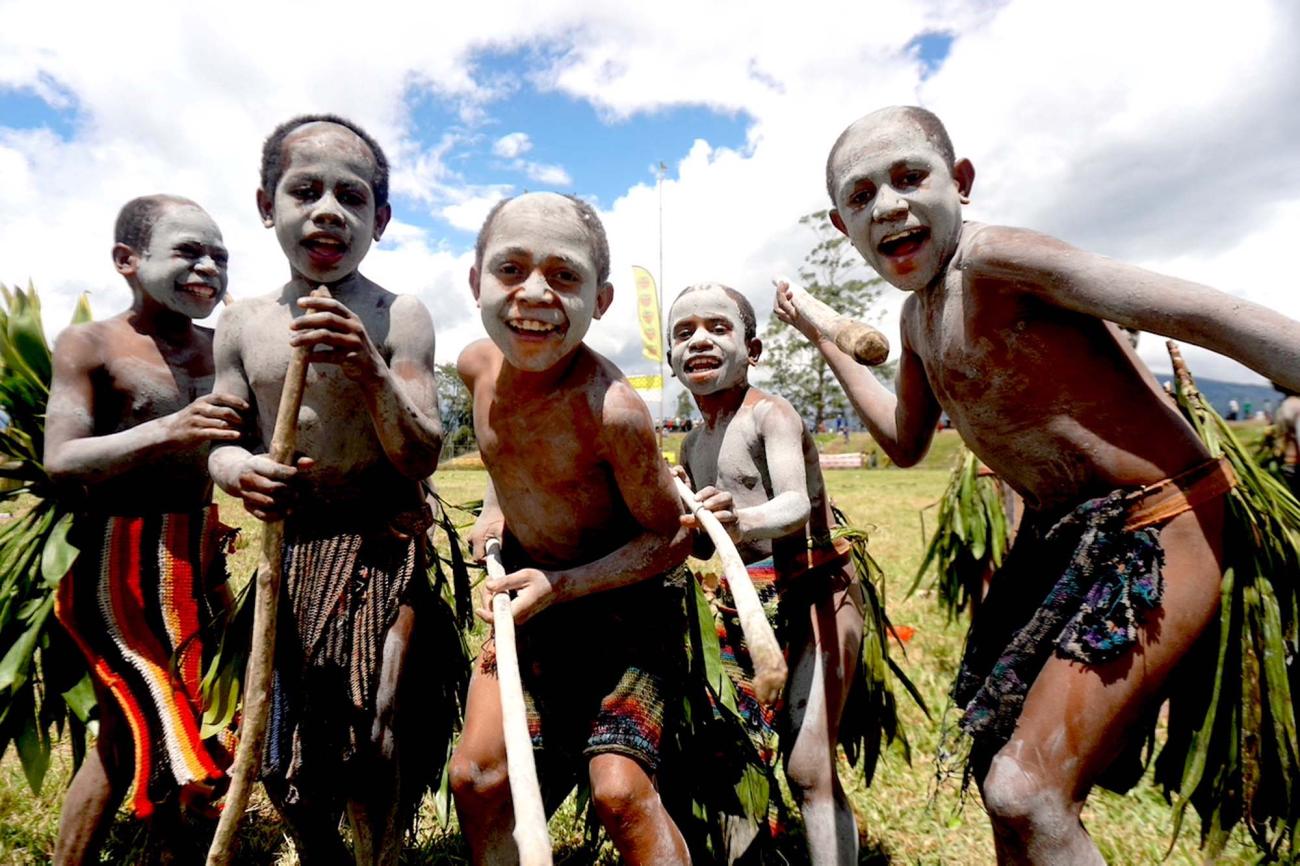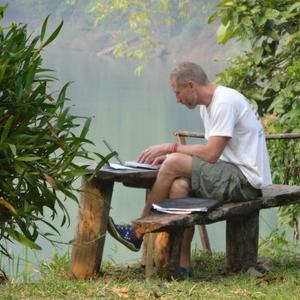Sing-Sing Fever!
Drumbeats and chants emanate from a flurry of feathered headdresses, conjuring up a mesmerising display of sound and vision unrivalled by anything I’ve seen on my travels. Despite the privilege of leading six tours in PNG, the beats and rhythms of the spectacular sing-sing shows remain a highlight of my annual travel calendar.
Every year, over 100 different tribal groups from around the mainland and islands of Papua New Guinea descend upon the Highlands for the big shows in Mount Hagen and Goroka. The original concept was to encourage clans to claim tribal superiority by out-singing (rather than out-chopping) rival clans.
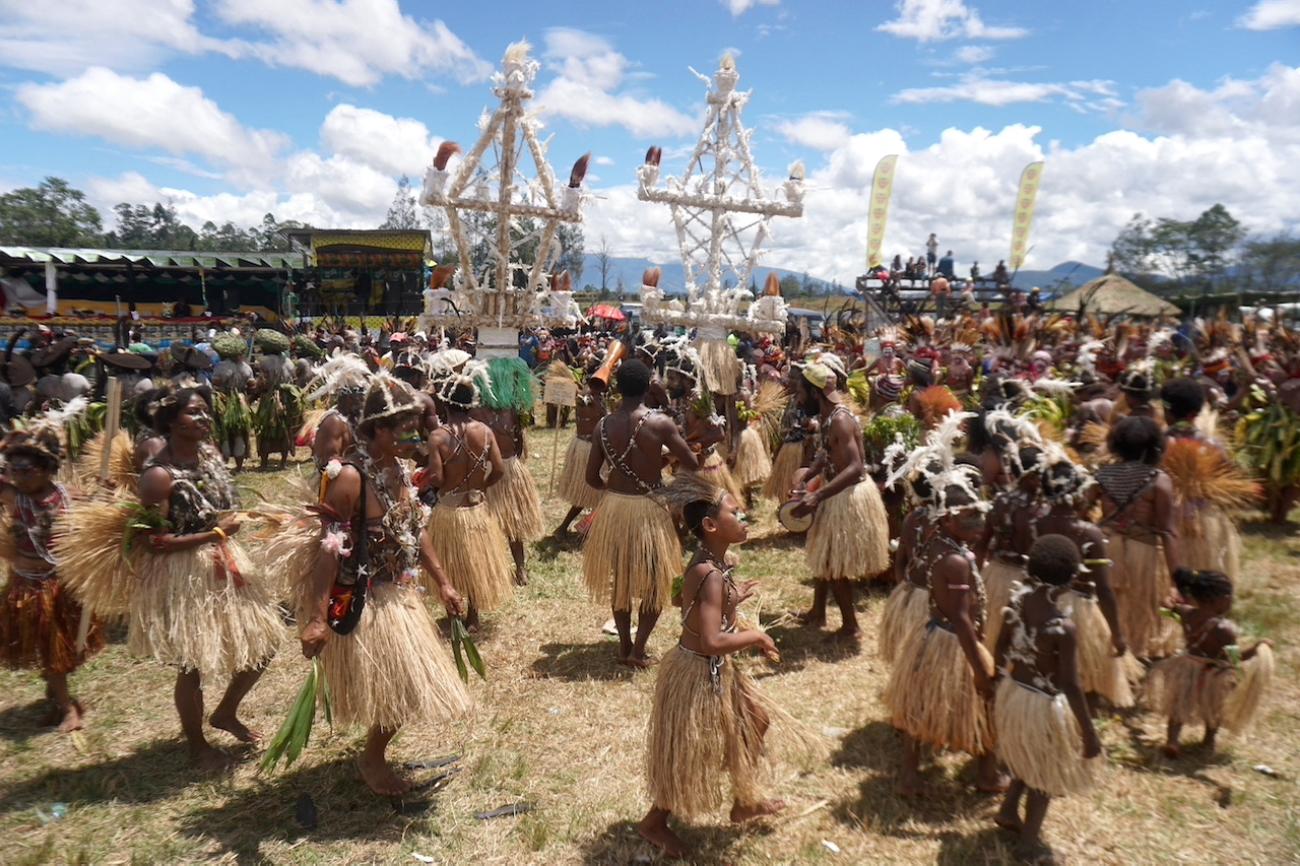
Papa New Guinea is one of the planet's most culturally diverse places, with over 1000 different ethnic groups speaking 800 plus languages. Many of these groups develop their own traditional ‘sing-sing’ - a hypnotic rhythm of chants, drums and percussion to mark special occasions or tell a creation story. For example, the clay-masked Asaro Mudmen were forced to flee their land by a rival tribe, so they regrouped, covered themselves in mud from the Asaro River, shaped horned clay masks and returned to frighten their invaders back to the hills. They are always a show highlight, smothered in white clay and moving eerily slow and silently – aside from the metallic clicking of their long claws.
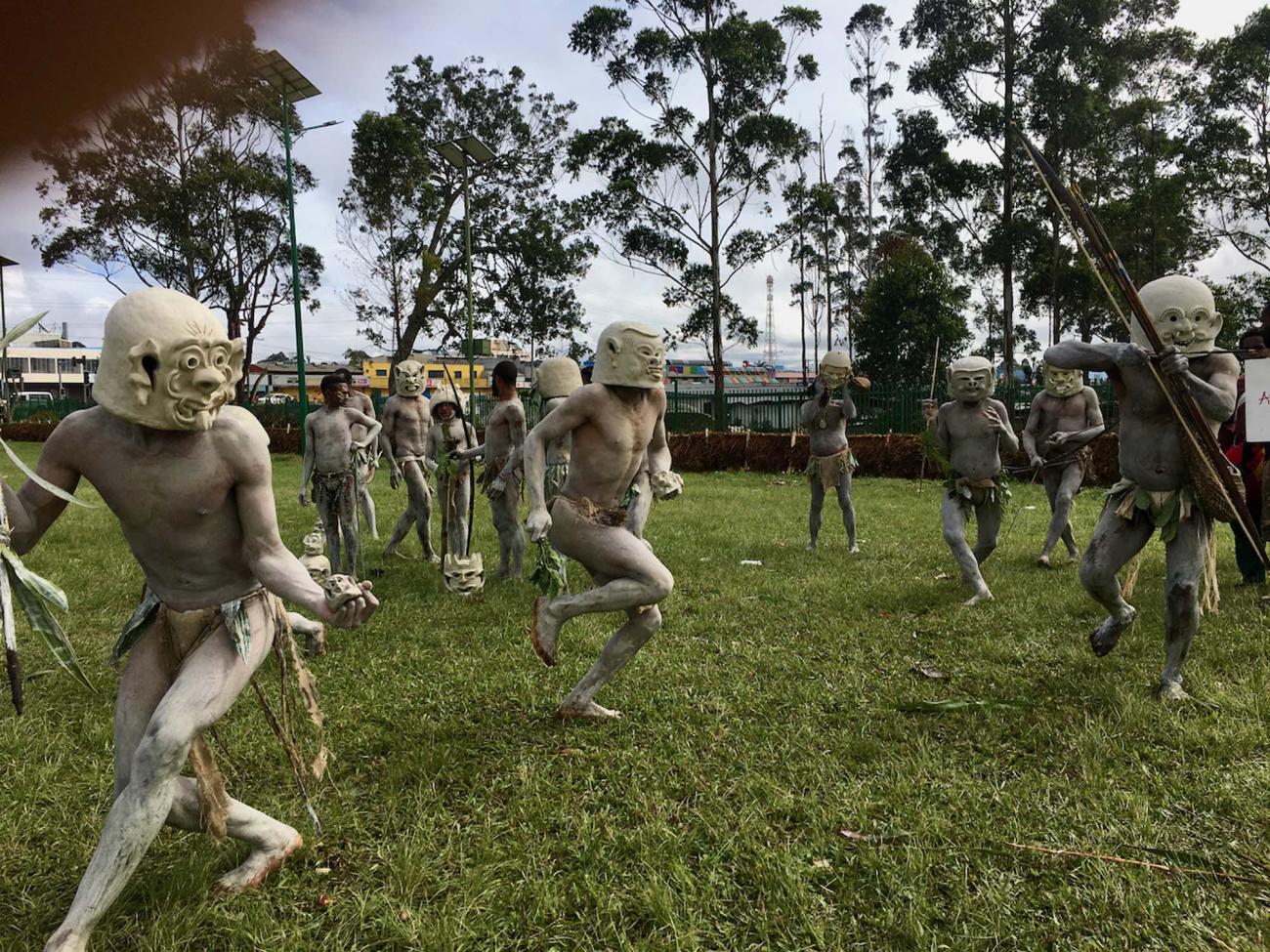
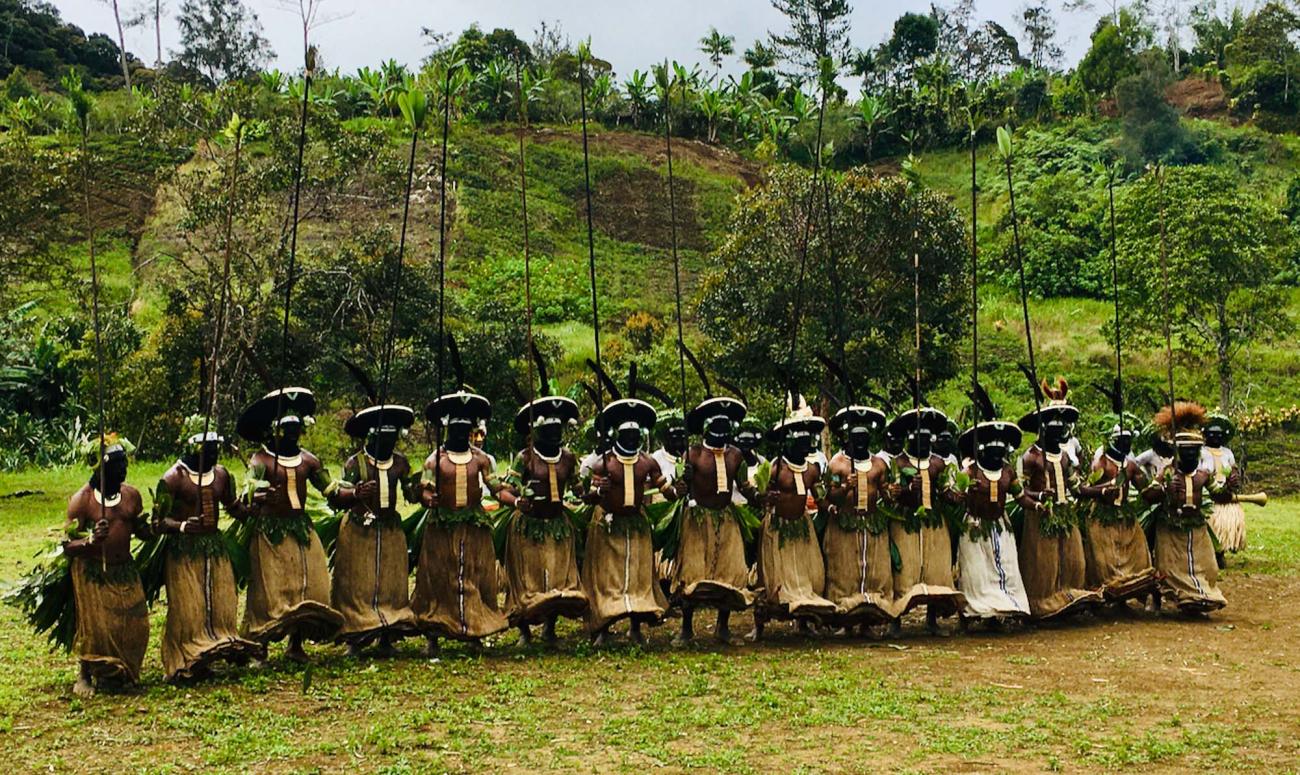
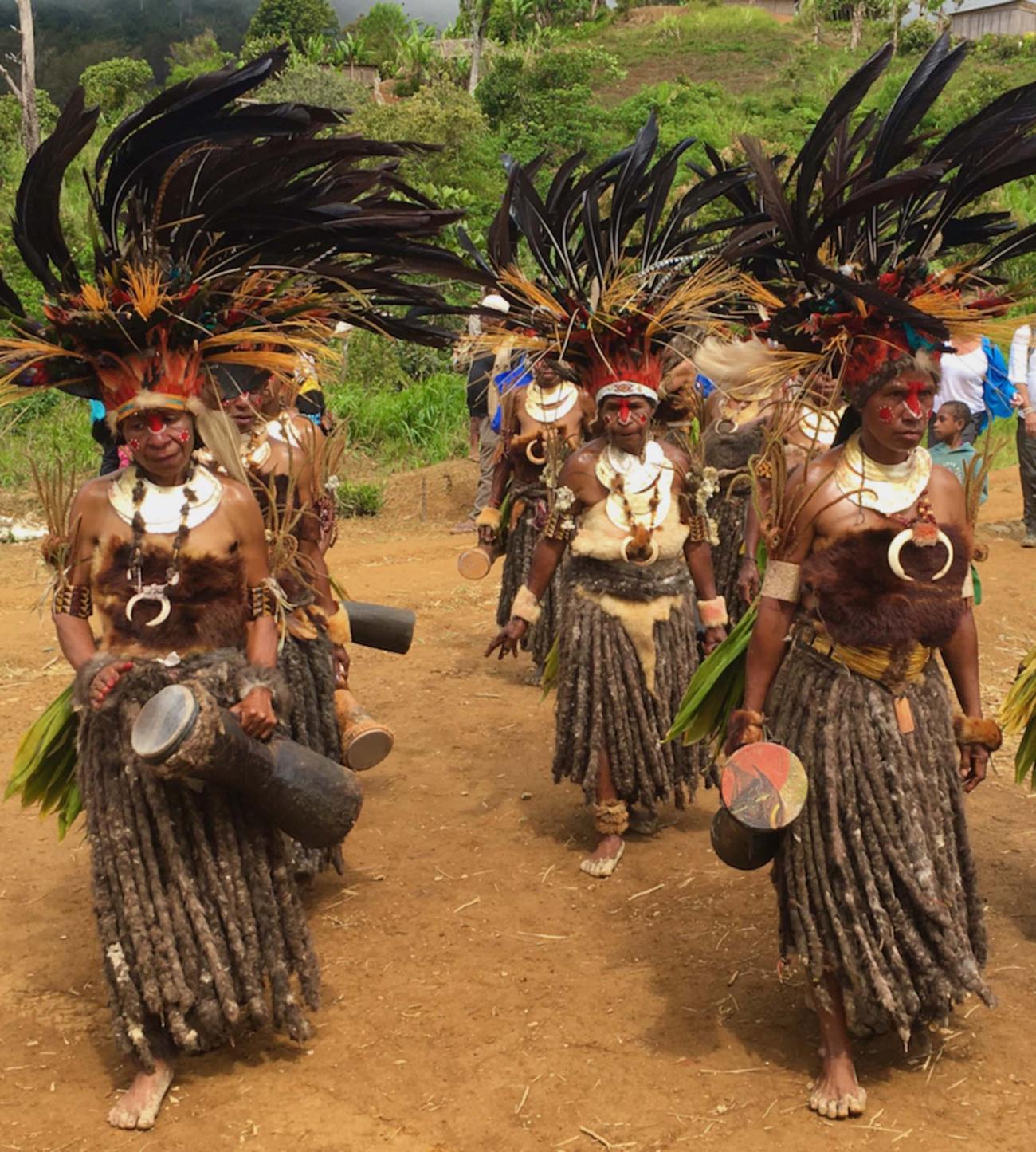
Festival fever engulfs the tough Highland towns for the whole show weekend and it’s not unusual to have sing-sing groups joining you for dinner at the hotel! The aural and visual explosion of colour, chanting and rhythms resonates in your head long after the drums finally fall silent.
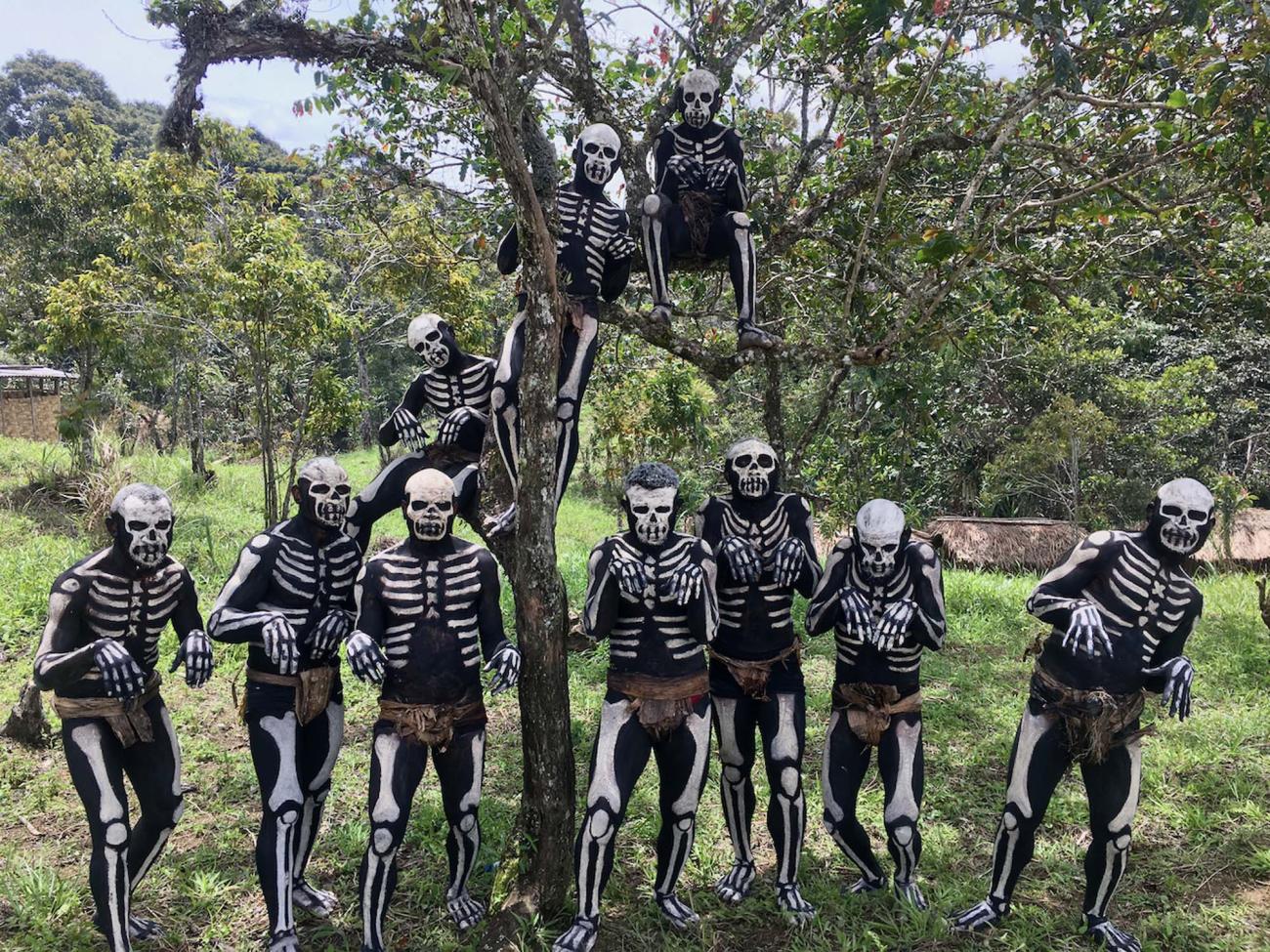
Offering a contrast to the chants and swarms of Papuans enjoying the festival, we conclude our PNG adventures in coastal Rabaul, East New Britain Island - an hour-plus jet ride from the capital. It’s a fascinating mix of history and natural beauty; the Japanese occupied the palm-fringed island during WW2, which was subsequently returned to Australian control until Independence in 1975. Rabaul’s harbour and surrounds are littered with remnants from the fierce war in the Pacific with sunken wrecks and pristine coral reefs creating a snorkelling and diving paradise.
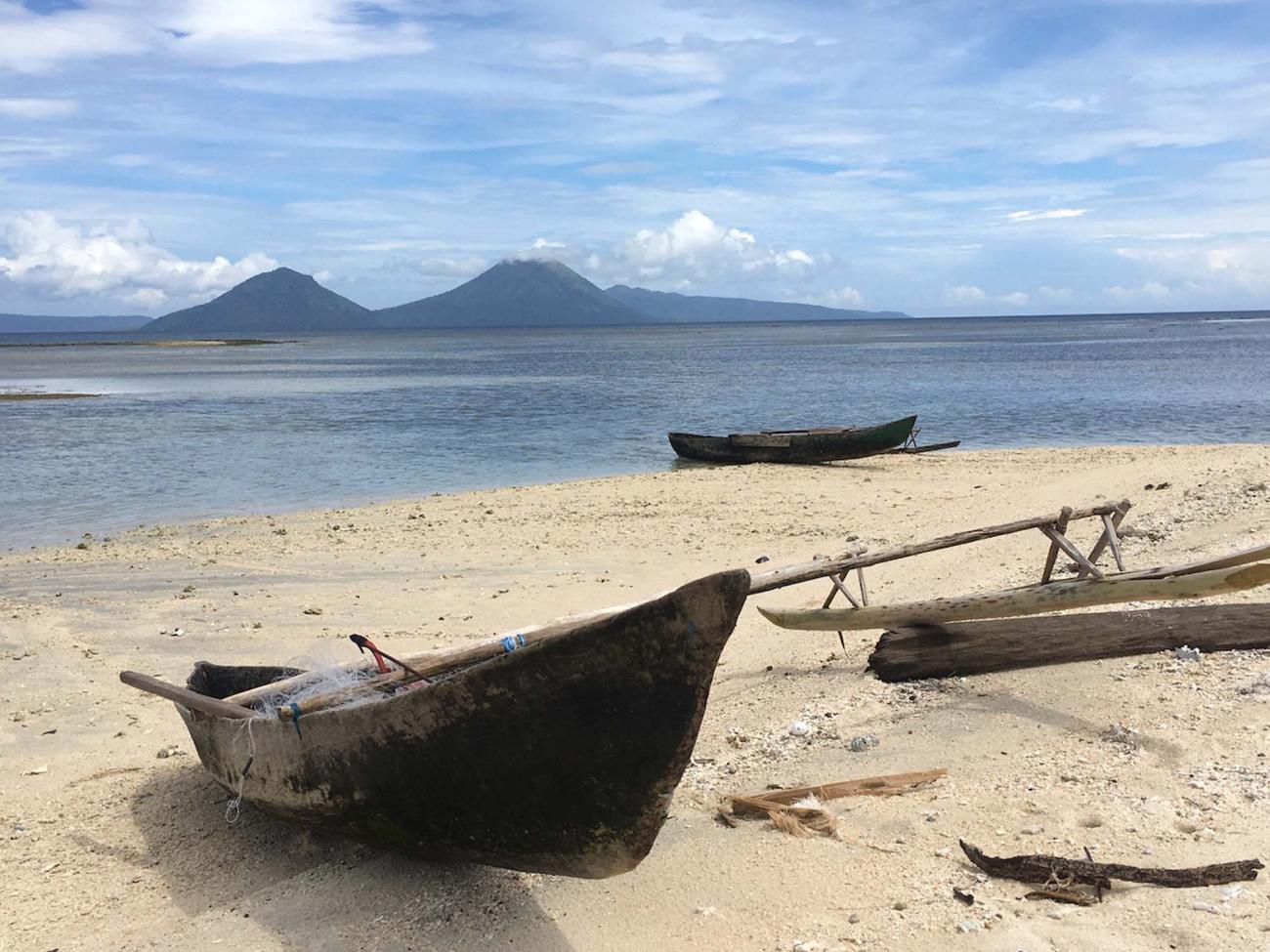
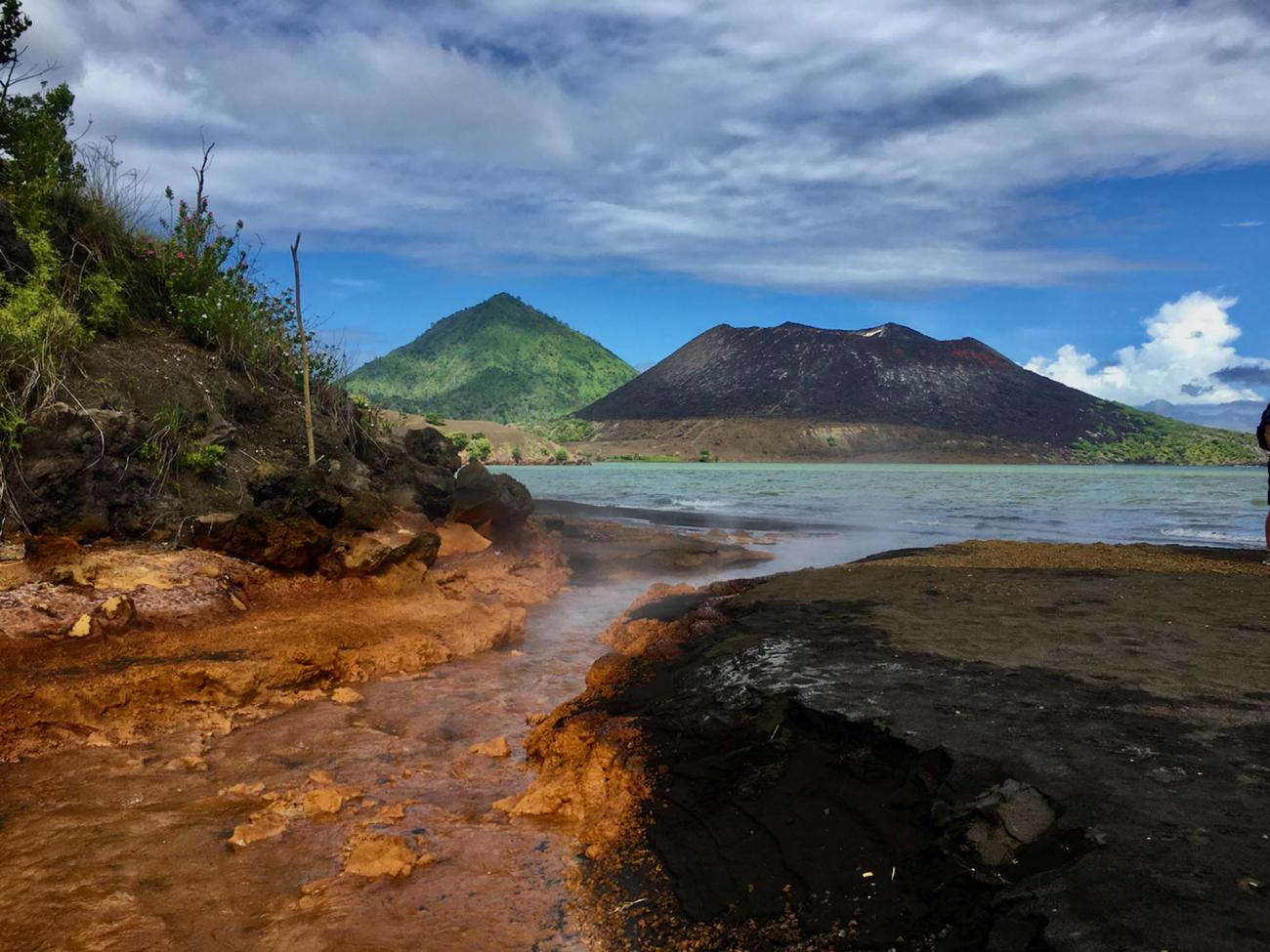
Rabaul sits in the volatile caldera of the Pacific Rim of Fire. The old town was drowned in ash from a twin eruption in 1994 – and was never re-inhabited. An eerie drive to the shoreline takes us through the sandy black ash still covering the town’s old streets. A boiling spring spurts and splatters fresh water through the sand at the water’s edge forming a steaming rockpool hot enough to boil a megapode egg.
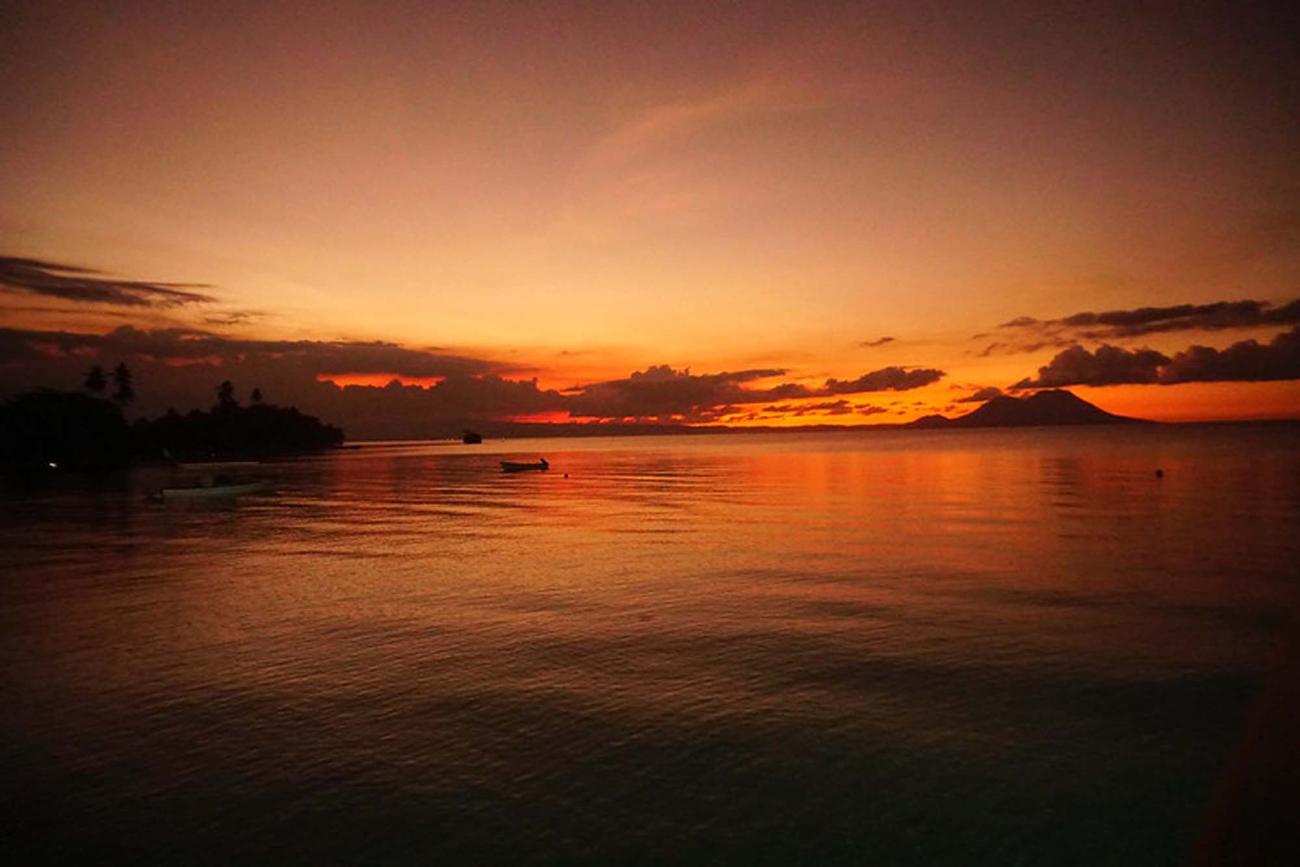
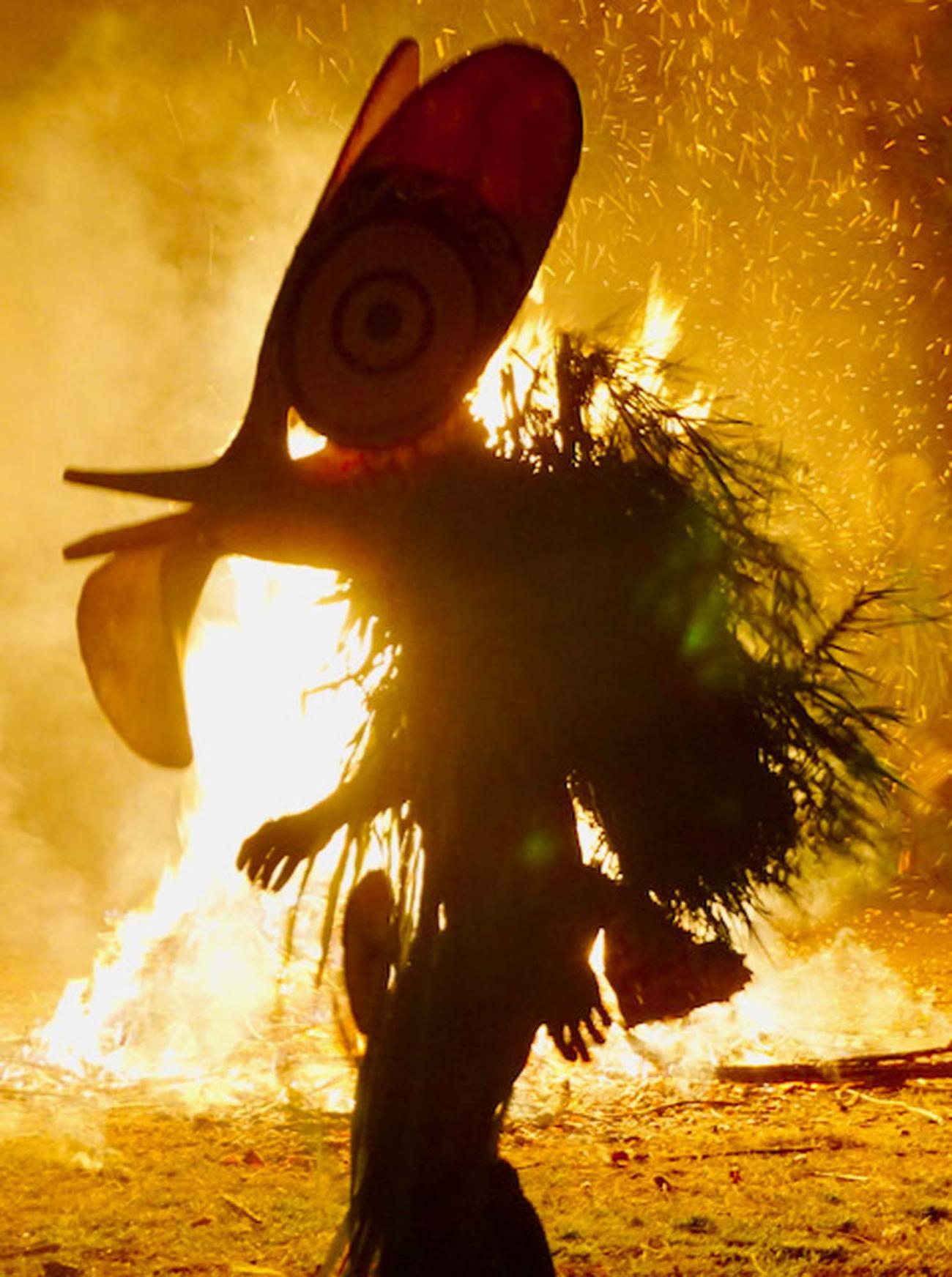
After a fascinating visit to the volcano monitoring station, our focus switched to the sandy beaches, reefs and gentle waters of the South Pacific.
An oceanside dinner watching the sun set spectacularly over the harbour would have been a fitting way to end our time in East New Britain – but we still had one more highlight to witness; a Fire Dance by the Baining people.
An hour's drive up into the darkness of the mountains set the scene for this last, nocturnal, spectacle. Flames flickering against a black sky dotted with stars marked our arrival at the village. Pulsating rhythms of bamboo pipes and drums intensified, as menfolk and their boys gathered in a circle ready for the tribal ritual. As the beats reached a crescendo the first giant mask appeared, and performers were slowly lured from the forest to the edge of the fire. As villagers enthusiastically thrust industrial quantities of wood into the flames, the dancers hypnotically span around, before either leaping through the fire or kicking flaming wood from it.
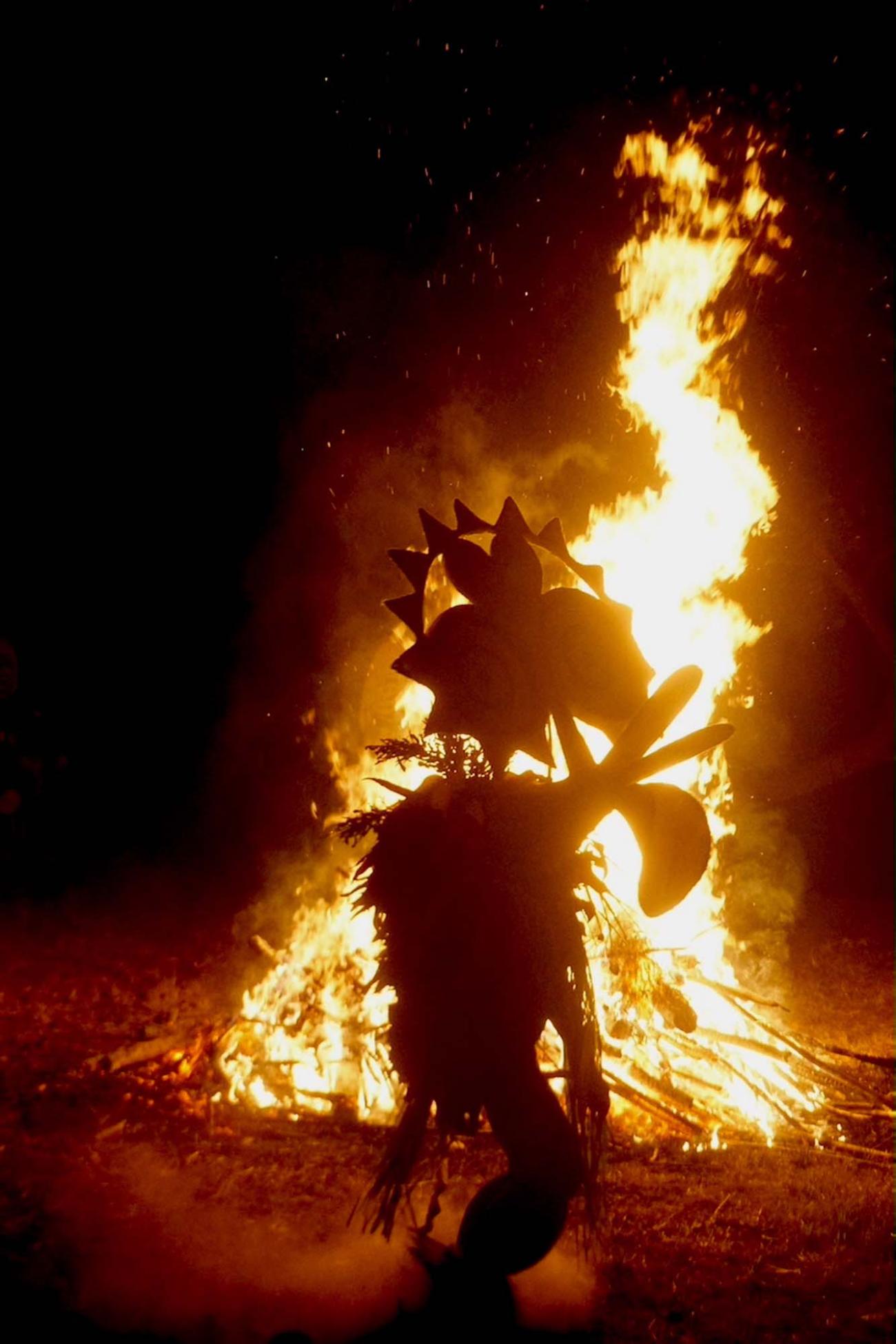
Returning to the capital, Port Moresby, we spent our last night at a fashionable oceanside restaurant – a far cry from our village stays on the Sepik River where our journey began. PNG is a land of contrasts and contradictions. My first PNG blog (way back in 2012), was titled ‘A Place Unlike Any Other’. I’m happy that over 10 years later there’s still nowhere on earth quite like Papua New Guinea.
‘Lukim you ken’ (See you again)…
